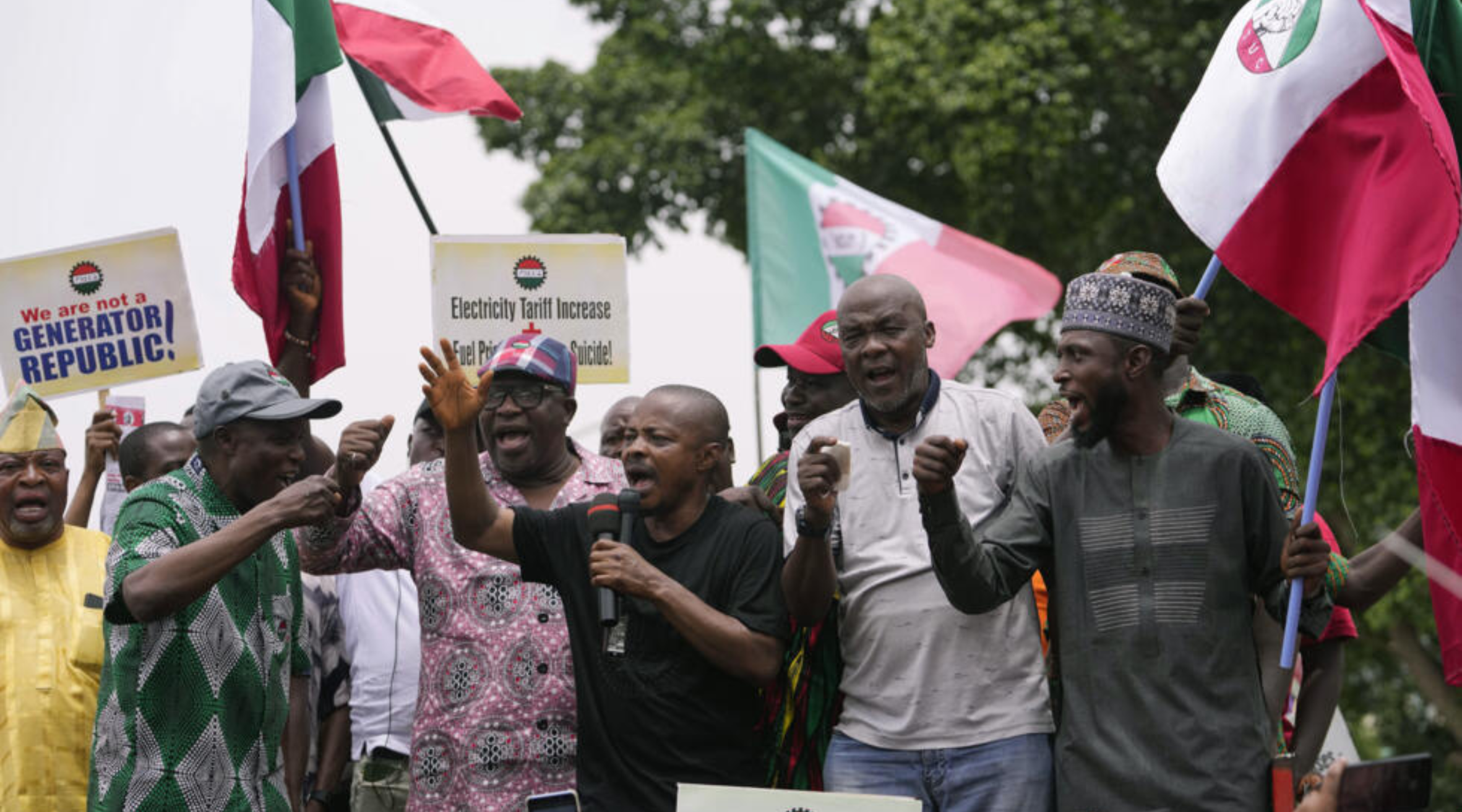Nigeria (Transatlantic Today)— A nationwide strike in Nigeria brought air travel to a standstill and plunged the country into darkness on Monday as union workers stormed the national grid and shut down the nation’s power supply, according to the Transmission Company of Nigeria (TCN).Tens of millions are without power and flights have been disrupted, as the Nigerian Labor Congress (NLC) and the Trade Union Congress (TUC) initiated an indefinite strike.
Violence at Power Stations
The TCN reported that its operators were attacked and forcibly removed from control rooms by union workers, some of whom were seen wielding canes in photos shared on social media. Additionally, personnel at the country’s tax agency were expelled from their offices.
Demand for Higher Wages
The federal minimum wage was not raised through agreements with the government, and electricity rates had recently gone up, which was the catalyst for the walkout. The unions want their pay increased to 494,000 naira ($369.60) from 30,000 naira ($22.40). On social networking site X, presidential assistant Bayo Onanuga, however, called these requests “unreasonable.” The unions pushed for a 1,547% increase in the minimum wage, rejecting the government’s plan to double it to 60,000 naira ($44.89), according to CNN,
Economic Context
Despite having Africa’s fourth-largest economy, Nigeria has a much lower minimum wage than other countries on the continent. For example, workers in the Seychelles earn a monthly minimum salary of $465.40.
Health Care and Travel Severely Impacted
Airports at a Standstill
The strike has left passengers stranded at major airports in Lagos and Abuja, with all incoming and outgoing flights grounded. Airport workers confirmed the halt to CNN.
Hospitals in Crisis
The healthcare system has also been critically affected. Dr. Olusina Ajidahun, a Nigerian doctor, expressed concern over the impact on hospital operations, noting that his facility in southwest Nigeria was unable to power essential equipment due to the grid shutdown. “The emergency unit and other areas were in complete darkness, affecting both patients and healthcare workers,” he said.
Government Response
Nigerian Justice Minister Lateef Fagbemi declared the strike illegal in a letter to the labor unions, calling it “premature and ineffectual.” The statement was posted by presidential aide Onanuga. Public reaction to the strike has been mixed, with some supporting the unions’ actions and others warning of the broader impact on citizens.
Economic Challenges and Controversial Spending
Nigeria is grappling with significant economic challenges, including a depreciating currency and a cost-of-living crisis marked by rising inflation, which has reached 33.69%, the highest in over three decades. President Bola Tinubu’s administration has faced criticism for questionable public expenditures, such as a 90 billion naira (USD 67 million) subsidy for Muslims attending the Hajj pilgrimage and substantial budgets for luxury SUVs and the modernization of the presidential palace.
Presidential spokesman Ajuri Ngelale acknowledged the current wage is “unsustainably low” but warned that the unions’ proposed increase could have severe economic repercussions, such as drastically higher school fees and potential job losses if institutions cannot afford the new wages. “Parents may have to deal with school fees ten times higher, and institutions may struggle to pay staff,” he said.


























